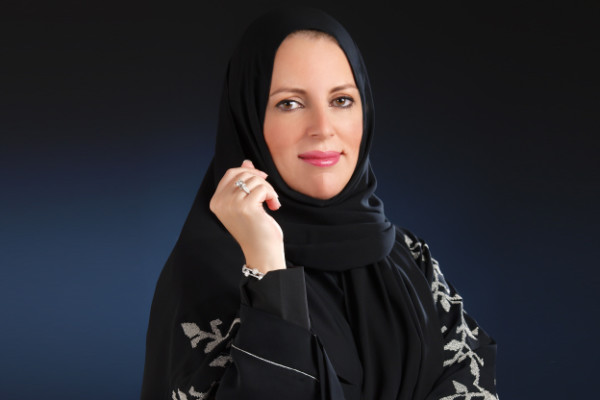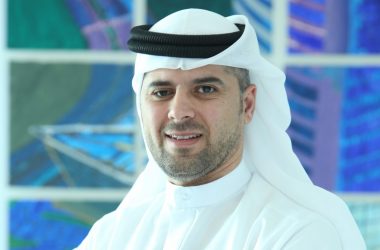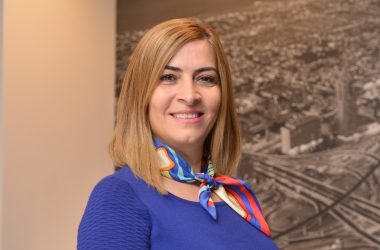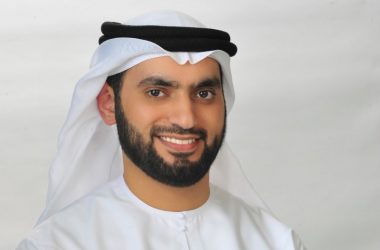Overcoming fierce opposition from the world’s most patriarchal government, dismissive colleagues and Saudi Arabia’s formidable religious police, Dr Arwa Yousuf Al-Aama now sits as a King Abdulaziz University computer science professor, CIO for Jeddah Municipality and a shining example for defying expectation.

In most walks of life, feigning illness to secure a meeting with your boss is not the conventional way to get things done. Dr Arwa Yousuf Al-Aama’s route to success has been far from conventional, however. The American-educated Master of computer science had arranged a meeting with her employer, the president of King Abdulaziz University (KAU), who was also a physician. “I had applied for a scholarship at KAU, to go to George Washington University (GWU) in the US to pursue my graduate education, but needed his approval in order to get it,” she says. “He told me ‘I don’t meet women’. There seemed one obvious way I could get his time.”
Al-Aama’s intentions were immediately transparent. Luckily for her, her determination shone through. “I think he recognised my eagerness, and reluctantly agreed to endorse my pursuit, granting me unpaid leave instead,” she says. “It may seem like an extreme course of action, but I knew it was the only way he would listen to me.”
This was one of many battles for education and equal opportunity that have been the norm for Al-Aama (now Professor Al-Aama, holding a doctorate of science and position at KAU) throughout her journey in establishing herself as one of the most respected technology professionals in the Middle East, and a shining example of a successful female in the world’s most patriarchal society. In many respects, her career has been defined by diversity, with a formidable CV that spans academia, technology and business.
Dr Al-Aama’s initial interest in technology was stoked by her father buying computer games for her as gifts from his travels. She was fascinated by their mechanics. “I wanted to create computer games of my own; games in Arabic,” she says. “My upbringing was out of the ordinary for Saudi Arabia.”
Fast-forward to 1985, and she left the country, quitting KAU’s College of Medicine to join California’s Northrop University to begin a computer science course. Things did not go to plan, however. “Northrop went bankrupt,” she recalls. She returned home, and completed her BSc. degree from KAU. Upon graduating, Dr Al-Aama assumed an unpaid position at the university, and after two years working there, we return to the start of our story.
Recognising the opportunity she had been given, Dr Al-Aama strove to go beyond the demands of the course, and further her knowledge as much as she possibly could. “My course advisor was absolutely marvellous,” she recalls. “It was against GWU’s policy to allow students to study more than four modules per semester on a Master’s course, but she saw that I was extremely keen and allowed me to study five. I was desperate to be ahead of the game.” Al-Aama completed the course in under a year, and returned to Saudi Arabia with a Master’s degree.
A pleasant surprise awaited her. KAU now had a new president, who was much more receptive to the idea of women bettering themselves in higher education. He approved Dr Al-Aama’s application to complete a doctorate, and she returned to GWU in 1997 to obtain the qualification. While Stateside, she went on to partake in a medical research project at Georgetown University.
Returning to Jeddah in 2003, Al-Aama assumed an assistant professor role at KAU, and by 2004 was named head of computer science. A year down the line, Dr Al-Aama’s field really began to gather steam at the institution. “King Abdullah agreed for the department of computer science to be transformed into the College of Computing and IT, with three departments dedicated to teaching women – IT, computer science and information systems,” she says. “We had to build everything from scratch. There were no staff or buildings.” Within two years, the college was fully accredited.
Whilst undertaking her teaching work at KAU, and establishing the women’s technology college, Dr Al-Aama displayed the breadth of her strengths by concurrently working as an IT consultant for Saudi holding investment company Savola Group.
Her work at the company would lay the foundations for a long and fruitful career in the public sector. As well as working on value-adding technology initiatives, she also cultivated a strong working relationship with company CEO Adel bin Muhammad Fakeih, who was appointed mayor of Jeddah in 2005. Fakeih acted quickly to recruit Dr Al-Aama as CIO of Jeddah Municipality the following year.
Her appointment as the only woman in the organisation instantly raised eyebrows with her new peers. “I knew at that stage that bringing women into a government environment would bring intense scrutiny,” she says. “If we had failed – or underperformed in their eyes – there was every chance that women may not be given such an opportunity for years. I had to make sure I took my chance.” Dr Al-Aama’s decision to grab the opportunity with both hands was sage. “Laws have since been introduced that mean women have had to be employed by the government, but that would’ve made my employment forced, which I didn’t want,” she says. “In truth, I was more concerned with political influences stifling my own progress.”
The Mutaween – Saudi Arabia’s religious police, employed by the Committee for the Promotion of Virtue and the Prevention of Vice – were a presence that lingered in the back of Dr Al-Aama’s mind. If they had caught wind that her work was not up to scratch in the early days of her tenure, she risked being deprived of opportunities that were rightfully hers. “They demanded very conservative practices,” she says. “They were raising flags if women were working in municipality departments, and that affected their ability to find jobs.”
In spite of this potential adversary, Dr Al-Aama held her own and established herself in the role. Her success encouraged Fakeih that more had to be done to increase the number of women in the organisation. “He asked me to help recruit more women, and to empower them in their IT careers,” she says.
Huge progress has since been made in the department. Dr Al-Aama now has a team of 300 people – split across the sexes – working beneath her, and is free to give equal opportunities to women. In her role as both CIO and vice mayor of IT, Dr Al-Aama reports directly to the city’s mayor, Dr Hani Mohammad Aburas. She is fully responsible for the city’s IT initiatives, both internally and externally. “Just over 10 years ago, we only had 50 PCs connected to a mainframe,” she says. “We have now deployed a range of exciting initiatives in the city. Things like Jeddah Cloud, our disaster recovery site and EURO-DIESEL – a backup system for the city’s IT infrastructure electricity supply – as well as our e-services and apps, are playing their part in the city’s developing economy.”
Her efforts in driving Jeddah to becoming a technologically-empowered smart city have already gained recognition from the Saudi government. In Jeddah Municipality’s sixth annual e-Government appraisal, the organisation scored 97 percent for its completion of e-services. This was the highest score for a municipality in the Kingdom, and among the top five for all of the country’s government organisations. A key factor in the Municipality’s high score was the strategy for Smart City initiatives that Dr Al-Aama has developed, the benefits of which will be realised in the coming years.
“Jeddah has huge potential, and is of great strategic importance to Saudi Arabia,” Dr Al-Aama says. “Not only is it on the coast of the Red Sea, but it’s also an important gateway to our holy cities for pilgrims.”
Although Dr Al-Aama does not endorse the sexist policies that she fought hard to overcome, she nonetheless believes that the culture they create can actually benefit women working in IT. It may seem a bizarre assertion, to believe that women working in isolation can contribute to good technology skills, but Dr Al-Aama is firm in her belief. “In 1998, the US was faced with a shortage of IT professionals, and realised that men couldn’t meet their demand alone,” she says. “Women were not going into computing or science professions. Research has shown that peer pressure dictates how men and women perform in class – men being in the lab 24/7, and women going home earlier. Women are expected to meet gender roles. Even President Clinton recognised this, and moved his daughter to an all-girls school.”
Linking this back to Saudi culture, it becomes clear how Dr Al-Aama believes isolation can cultivate bright programming minds. “There are more women than men studying computing in Saudi Arabia,” she says. “They excel in things like system development and analysis, programming and web development, because they can do these things on their own, from anywhere. This, to a certain extent, fits with Saudi culture.”
An “entrepreneur” prior to her graduation, Dr Al-Aama had interests in launching maternity and arts and crafts products, but those plans were soon shelved after realising her passion for IT. She has, however, since established her own consulting firm, Smart Solutions. Fakeih, now Saudi Arabia’s minister for economy and planning, remains one of her most influential clients.
At her core, Dr Al-Aama is a firm believer in having passion for her work. She does everything she can to show her three children – Alaa, a media and communication specialist; Abdulrahman, an engineering student at KAU; and Jana, a student at Ibn Sinaa Medical College – that they should spend their time wisely. “I absolutely love my job, and think those who don’t should leave if they can,” she says. “Ultimately, you spend most of your time at work, and if you are forcing yourself to do something for too long then you will get frustrated, and that will affect your life around you.”
She is also a believer in thinking outside the box. “My father taught us that if you could study something that not many others know about, and can become an expert, you’re at a huge advantage,” she says. “One of my brothers is our country’s vice minister of health – who specialises in geriatrics – the other is an electrical engineer with three MBAs, working as an advisor to the minister of energy, industry and mineral resources, and my sister is a genetic physician. I wanted to study computer science and people thought that was wrong, but I don’t believe you’ll be truly successful if you just do whatever anyone else does.”





